BMW iX vs Porsche Taycan - Differences and prices compared
Compare performance (659 HP vs 1034 HP), boot space and price (71600 £ vs 87900 £ ) at a glance. Find out which car is the better choice for you – BMW iX or Porsche Taycan?
Costs and Efficiency:
Price and efficiency are often the first things buyers look at. Here it becomes clear which model has the long-term edge – whether at the pump, the plug, or in purchase price.
BMW iX has a clearly perceptible advantage in terms of price – it starts at 71600 £ , while the Porsche Taycan costs 87900 £ . That’s a price difference of around 16371 £.
In terms of energy consumption, the advantage goes to the Porsche Taycan: with 16.70 kWh per 100 km, it’s minimal more efficient than the BMW iX with 17.80 kWh. That’s a difference of about 1.10 kWh.
As for electric range, the BMW iX performs barely noticeable better – achieving up to 701 km, about 21 km more than the Porsche Taycan.
Engine and Performance:
Under the bonnet, it becomes clear which model is tuned for sportiness and which one takes the lead when you hit the accelerator.
When it comes to engine power, the Porsche Taycan has a distinct edge – offering 1034 HP compared to 659 HP. That’s roughly 375 HP more horsepower.
In acceleration from 0 to 100 km/h, the Porsche Taycan is significantly quicker – completing the sprint in 2.20 s, while the BMW iX takes 3.80 s. That’s about 1.60 s faster.
There’s also a difference in torque: Porsche Taycan pulls evident stronger with 1340 Nm compared to 1015 Nm. That’s about 325 Nm difference.
Space and Everyday Use:
Beyond pure performance, interior space and usability matter most in daily life. This is where you see which car is more practical and versatile.
Seats: BMW iX offers a bit more seating capacity – 5 vs 4.
In curb weight, Porsche Taycan is somewhat lighter – 2165 kg compared to 2525 kg. The difference is around 360 kg.
In terms of boot space, the BMW iX offers somewhat more room – 500 L compared to 407 L. That’s a difference of about 93 L.
When it comes to payload, Porsche Taycan barely noticeable takes the win – 635 kg compared to 575 kg. That’s a difference of about 60 kg.
Who wins the race in the data check?
The Porsche Taycan is far ahead overall in the objective data comparison.
This result only shows which model scores more points on paper – not which of the two cars feels right for you.
Costs and Consumption
View detailed analysis
Engine and Performance
View detailed analysis
Dimensions and Body
View detailed analysis
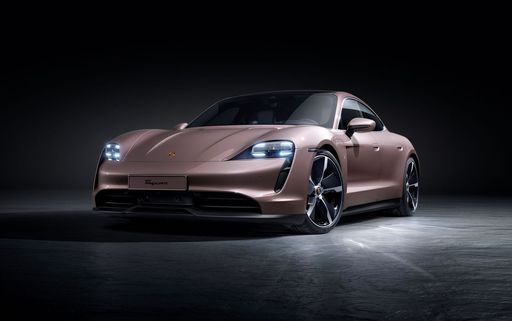
Porsche Taycan
BMW iX
The BMW iX arrives like a tech-rich luxury SUV that refuses to shout, offering a serene yet authoritative road presence that suits both city commutes and long-distance cruising. Inside, its minimalist cabin wraps high-quality materials and clever interfaces around a driver-focused layout, making it feel more like a forward-thinking lounge than just another electric appliance — and yes, it still delivers the dynamic driving character you'd expect from a BMW.
details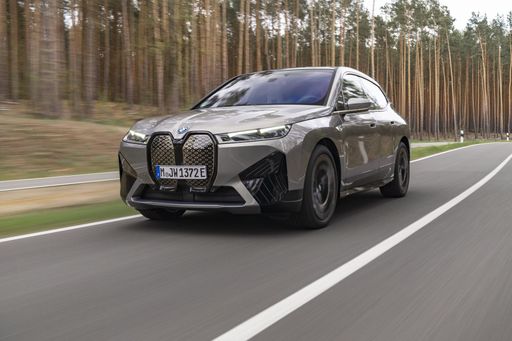
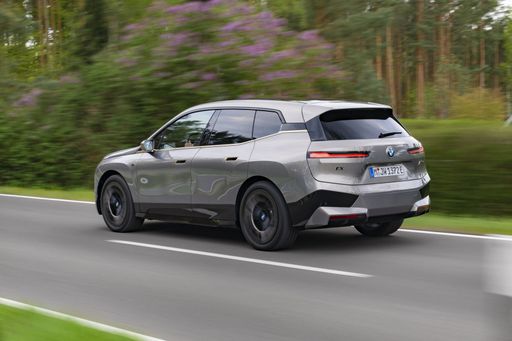
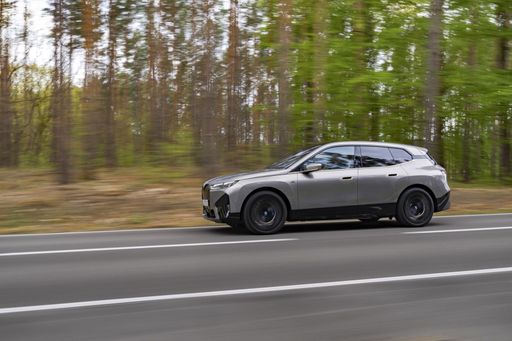
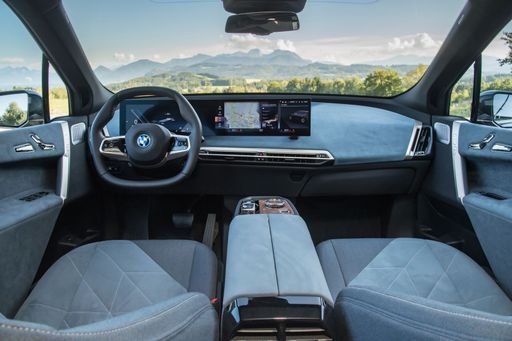
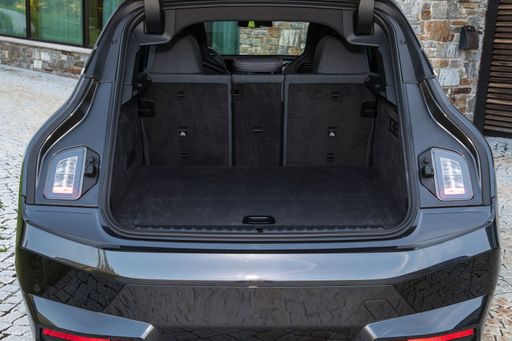
Porsche Taycan
The Porsche Taycan blends Porsche's razor-sharp handling with electric immediacy, delivering an exhilarating, near-silent shove that still feels unmistakably sporty. Inside it's a high-tech cockpit wrapped in premium materials, making it as rewarding to live with day to day as it is thrilling to drive on a twisty road.
details
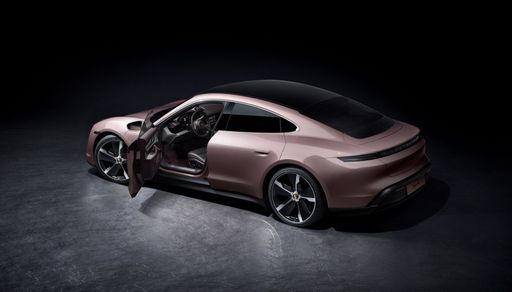
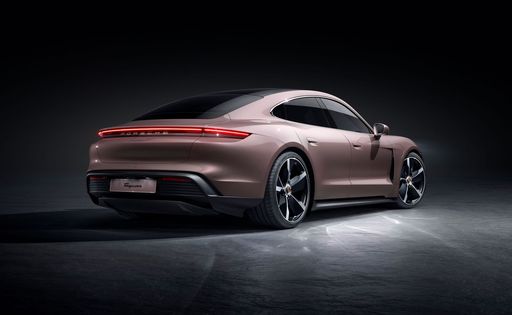
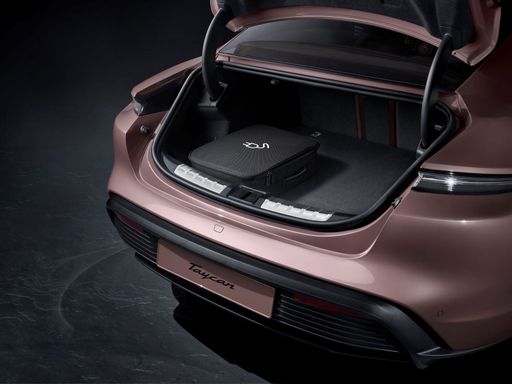
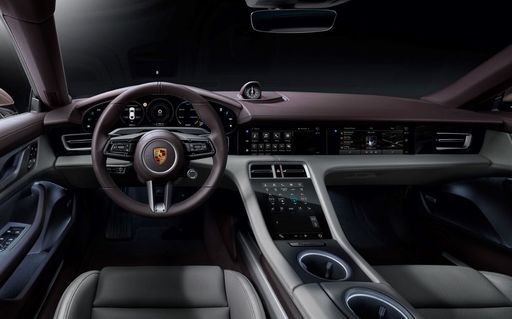
Costs and Consumption |
|
|---|---|
|
Price
71600 - 108400 £
|
Price
87900 - 206700 £
|
|
Consumption L/100km
-
|
Consumption L/100km
-
|
|
Consumption kWh/100km
17.8 - 20.6 kWh
|
Consumption kWh/100km
16.7 - 20.7 kWh
|
|
Electric Range
600 - 701 km
|
Electric Range
552 - 680 km
|
|
Battery Capacity
-
|
Battery Capacity
82.3 - 97 kWh
|
|
co2
0 g/km
|
co2
0 g/km
|
|
Fuel tank capacity
-
|
Fuel tank capacity
-
|
Dimensions and Body |
|
|---|---|
|
Body Type
SUV
|
Body Type
Coupe
|
|
Seats
5
|
Seats
4
|
|
Doors
-
|
Doors
4
|
|
Curb weight
2525 - 2655 kg
|
Curb weight
2165 - 2370 kg
|
|
Trunk capacity
500 L
|
Trunk capacity
326 - 407 L
|
|
Length
-
|
Length
4962 - 4968 mm
|
|
Width
1970 mm
|
Width
1966 - 1998 mm
|
|
Height
-
|
Height
1378 - 1381 mm
|
|
Max trunk capacity
-
|
Max trunk capacity
-
|
|
Payload
505 - 575 kg
|
Payload
175 - 635 kg
|
Engine and Performance |
|
|---|---|
|
Engine Type
Electric
|
Engine Type
Electric
|
|
Transmission
Automatic
|
Transmission
Automatic
|
|
Transmission Detail
Reduction Gearbox
|
Transmission Detail
Reduction Gearbox
|
|
Drive Type
All-Wheel Drive
|
Drive Type
Rear-Wheel Drive, All-Wheel Drive
|
|
Power HP
408 - 659 HP
|
Power HP
408 - 1034 HP
|
|
Acceleration 0-100km/h
3.8 - 5.1 s
|
Acceleration 0-100km/h
2.2 - 4.8 s
|
|
Max Speed
-
|
Max Speed
230 - 305 km/h
|
|
Torque
700 - 1015 Nm
|
Torque
410 - 1340 Nm
|
|
Number of Cylinders
-
|
Number of Cylinders
-
|
|
Power kW
300 - 485 kW
|
Power kW
300 - 760 kW
|
|
Engine capacity
-
|
Engine capacity
-
|
General |
|
|---|---|
|
Model Year
2025
|
Model Year
2024 - 2025
|
|
CO2 Efficiency Class
A
|
CO2 Efficiency Class
A
|
|
Brand
BMW
|
Brand
Porsche
|
Is the BMW iX offered with different drivetrains?
The BMW iX is offered with All-Wheel Drive.
